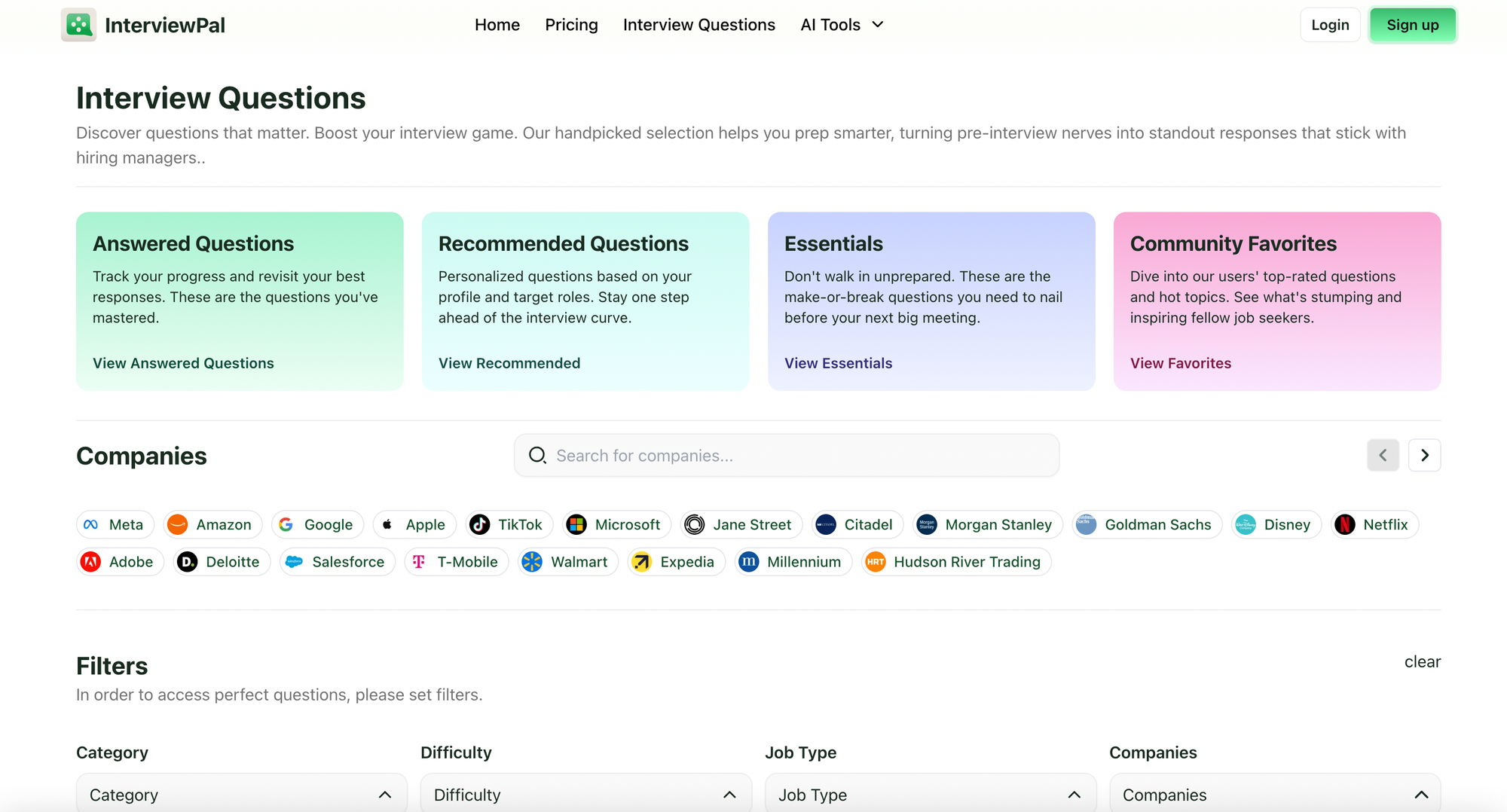One of the most challenging interview questions candidates often face is: “Tell me about a time you overcame adversity.” This question is designed to assess how well you handle difficult situations, your problem-solving skills, and your ability to remain resilient under pressure. It’s also an opportunity to showcase your emotional intelligence and your ability to stay calm and focused in the face of challenges.
In this article, we’ll break down how to craft a strong response, explore why interviewers ask this question, and provide real-world examples to help you prepare. By the end of this guide, you’ll be able to confidently answer this question in a way that demonstrates your resilience and professionalism.
Why Employers Ask About Overcoming Adversity
When employers ask, “Tell me about a time you overcame adversity,” they want to learn more than just the details of a tough situation. They are looking to understand:
- Problem-Solving Ability: How do you approach problems? Are you a proactive thinker?
- Resilience: Can you maintain your focus and commitment, even when things aren’t going smoothly?
- Emotional Intelligence: How do you handle stress and manage emotions during challenging times?
- Character: What do your reactions and decisions in tough times say about you as a person?
This question allows hiring managers to see how you’ve handled adversity in the past and gives them an idea of how you might handle similar situations in their organization.
How to Structure Your Answer Using the STAR Method
The best way to answer any behavioral interview question, including the "adversity" question, is by using the STAR method. STAR stands for:
- Situation: Set the stage by describing the context of the adversity you faced.
- Task: Explain your role in the situation and the challenges you had to address.
- Action: Detail the specific steps you took to overcome the adversity.
- Result: Share the outcome, highlighting any positive results or lessons learned.
This method helps keep your answer structured and focused, ensuring you cover all the important aspects of the story.
Step-by-Step Guide to Crafting Your Response
1. Choose a Relevant Example
When selecting an example of overcoming adversity, make sure it’s both relevant to the job and highlights your strengths. For example, if you’re applying for a customer service role, talk about a time you had to handle a difficult customer or resolve a challenging issue. If you're interviewing for a project management position, describe how you navigated a project that faced significant setbacks.
Pro Tip: Avoid examples from your personal life unless they directly relate to your work experience. It’s always better to focus on professional challenges.
2. Set the Stage (Situation)
Start by briefly describing the context of the challenge. Provide enough detail to help the interviewer understand the significance of the adversity, but don’t get bogged down in too many specifics.
Example:
"In my previous role as a project manager, we were in the middle of a critical project when our lead developer left unexpectedly. This put the entire project at risk, and we were already behind on the deadline."
3. Explain Your Role (Task)
Next, explain your role in addressing the adversity. Be clear about what your responsibilities were and why you were tasked with handling the situation.
Example:
"As the project manager, it was my responsibility to ensure the project stayed on track and that our client received their deliverables on time. I had to quickly assess the situation and find a solution to keep the project moving forward."
4. Detail the Actions You Took (Action)
Now, describe the specific actions you took to resolve the problem. Focus on your problem-solving abilities, leadership skills, and decision-making process.
Example:
"I immediately gathered the team to assess how much work remained and identified which team members could temporarily take over some of the lead developer’s tasks. I also reached out to my network and found a freelance developer who could help us complete the project. I negotiated a quick onboarding process and adjusted the timeline accordingly."
5. Share the Outcome (Result)
Finally, describe the outcome. Ideally, the result should be positive, but even if the result wasn’t perfect, highlight what you learned from the experience and how it improved your problem-solving abilities.
Example:
"Thanks to our team’s quick response and the freelance developer’s support, we were able to complete the project on time, and the client was very satisfied with the final product. This experience taught me the importance of being adaptable in the face of unexpected challenges and strengthened my ability to lead teams through adversity."
Common Mistakes to Avoid When Answering
While answering this question, it’s important to avoid some common pitfalls:

1. Over-Explaining the Situation
Don’t spend too much time explaining the context of the adversity. While it’s important to set the stage, the bulk of your answer should focus on your actions and the outcome. The interviewer is more interested in what you did to overcome the challenge than the intricacies of the problem itself.
2. Blaming Others
Avoid blaming colleagues, managers, or external circumstances for the adversity you faced. Even if the challenge was caused by someone else’s actions, focus on how you took ownership of the situation and moved forward.
3. Choosing Irrelevant or Minor Challenges
Don’t choose an example of adversity that feels trivial or irrelevant to the role you're applying for. Overcoming a small inconvenience or a personal conflict won’t have the same impact as describing a situation where you truly had to demonstrate resilience and problem-solving skills.
4. Failing to Highlight the Result
Make sure you finish your story with the outcome, and ideally, make it a positive one. If the result wasn’t perfect, emphasize the lessons learned and how the experience made you a better employee or leader.
Real-Life Example Responses
Here are a few sample responses to help you craft your own:
Example 1: Overcoming Adversity in Sales
"In my previous sales role, I was tasked with managing our largest account, but halfway through the year, we lost a key contact at the company due to a merger. This significantly impacted our relationship with the client, and I was at risk of losing the account. I quickly set up meetings with new stakeholders to re-establish the relationship and tailored our product offerings to align with the client’s new direction. In the end, not only did we retain the account, but we also increased our revenue with them by 20%. This experience taught me the value of perseverance and adaptability in maintaining client relationships."
Example 2: Overcoming Adversity in Customer Service
"As a customer service representative, I once handled a situation where a customer had been sent the wrong product multiple times, and they were understandably upset. I immediately took ownership of the situation, apologized sincerely, and personally ensured that the correct product was sent out with expedited shipping. I also offered them a discount on their next purchase as a goodwill gesture. The customer later wrote a glowing review about their experience and became a repeat buyer. This taught me the importance of empathy and taking responsibility in challenging situations."
Example 3: Overcoming Adversity in IT
"In my last role as an IT support specialist, we experienced a major server outage that affected the entire company’s operations. I worked quickly with the team to identify the root cause and coordinated with external vendors to restore services as fast as possible. During the outage, I also kept all departments updated with real-time progress reports to reduce frustration. We resolved the issue within a few hours and were able to prevent future outages by implementing a more robust backup system. This situation helped me develop stronger crisis management skills and taught me the importance of communication during technical challenges."
Final Tips for Answering the “Adversity” Interview Question
- Be Honest: Authenticity is key when answering this question. Don’t exaggerate or fabricate a story. Focus on a real-life challenge that had a meaningful impact on your work.
- Keep It Professional: While personal adversity stories might seem compelling, it’s best to stick to professional examples that demonstrate your work-related skills and strengths.
- Emphasize Growth: Highlight how overcoming adversity has made you a better employee, whether through improved problem-solving skills, better communication, or greater resilience.
- Practice Your Delivery: Like any interview question, practice makes perfect. Rehearse your answer so that you can deliver it confidently and succinctly.
How InterviewPal Can Help
If you're looking for more guidance on how to answer challenging interview questions like this one, InterviewPal is here to help. Our platform offers:
- Mock interviews tailored to your specific industry and role.
- AI-powered feedback to help you refine your answers and improve your delivery.
- Expert tips on how to tackle even the toughest interview questions.
With InterviewPal, you can practice answering behavioral questions, track your progress, and get the insights you need to stand out from the competition.
Start preparing today and get one step closer to landing your dream job!



